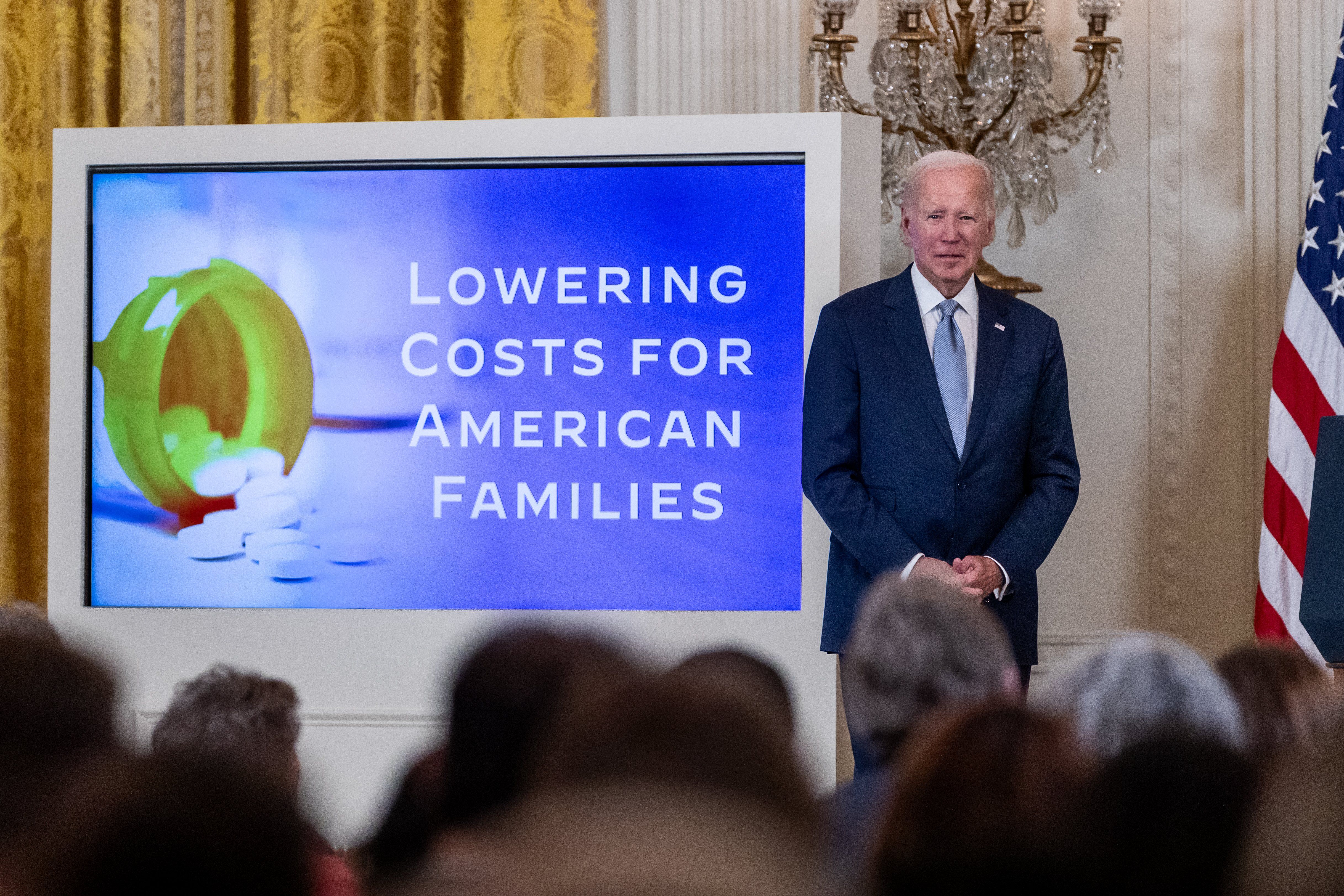The Biden administration this week selected the first 10 drugs that will be subject to price negotiations between the US government and pharma companies.
The move, part of the White House’s signature Inflation Reduction Act, aims to bring down the sky-high prices that people on Medicare, the government’s medical insurance program for people 65 and older, pay for many lifesaving drugs. By wrangling down drug prices, Biden also hopes to shore up the financial solvency of Medicare itself. The new, lower drug prices are supposed to take effect by 2026.
Bringing down drug prices is hugely popular with Americans of both parties, particularly older folks. Americans, on average, pay more than twice as much for medicines as people in other advanced economies, and more than three times as much for brand-name drugs, according to a 2021 Rand Corporation study. Nearly 30% of Americans have trouble paying for their meds, a recent Kaiser Family Foundation study found.
But Big Pharma isn’t happy about it. Drug manufacturers say that artificially suppressing prices for cutting-edge medications will rob them of the money they need to invest in developing new cures. Several large companies have already sued the Biden administration, arguing that the move violates constitutional prohibitions on the government messing with people’s private property.
Don’t be surprised if this one goes all the way to the Supreme Court.
More For You
1,170: The number of high-rise buildings in Kyiv that were left without heating following a barrage of Russian attacks last night on Ukraine’s capital and its energy facilities, per Kyiv Mayor Vitali Klitschko.
Most Popular
What We’re Watching: US critical minerals summit, Rafah crossing reopens, Border violence in Pakistan
U.S. President Donald Trump and Japanese Prime Minister Sanae Takaichi hold up signed documents regarding securing the supply of critical minerals and rare earths, at a bilateral meeting at Akasaka Palace in Tokyo, Japan, October 28, 2025.
Representatives from the European Union, United Kingdom, Japan, and others will meet in Washington this week to discuss a strategic alliance on critical minerals.
Hard numbers: Large protests in Czechia, UAE-linked firm has large stake in the president’s company, & More
80,000: The number of people estimated to be in the streets of Czechia on Sunday to show their support for President Petr Pavel after he blocked the nomination of an environmental minister who performed the Nazi salute and posted Nazi memorabilia.
The US has started handing $1,000 to the bank accounts of newborn babies. But can policies like this one help boost sagging birthrates in advanced democracies?
